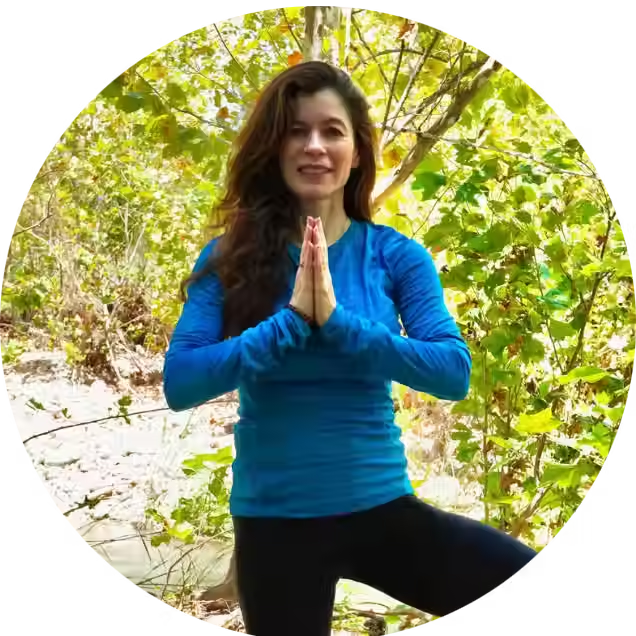Miketz: Trauma-Informed Torah
- Roberta Wall
- Dec 3, 2021
- 3 min read
וַיֹּאמֶר הִנֵּה שָׁמַעְתִּי כִּי יֶשׁ־שֶׁבֶר בְּמִצְרָיִם רְדוּ־שָׁמָּה וְשִׁבְרוּ־לָנוּ מִשָּׁם וְנִֽחְיֶה וְלֹא נָמֽוּת
“Now I hear,” he [Jacob] went on, “that there is shever [fragments or brokenness] to be had in Egypt. Go down and encounter shever for us there, that we may live and not die.”
Genesis 42:2
For many years, I’ve been on a journey to encounter Judaism as a spiritual path. What does this mean to me? When I think of spiritual path, I breathe in deeply and access sustenance. The spiritual path is a source of sustenance and nourishment that directs, guides and inspires me to live this life in a way that has satisfying meaning. There is an experience of elevating and deepening connection to what is right here, right now. It’s accessing, in body and consciousness, a limitless inner space where everything is interconnected, everything is included, where healing fragmentation takes place.
In Judaism, I often find a well of nourishment and meaning when I engage with Hasidic teachings and practices from the Torah and other sacred Jewish texts. My ancestors came out of Eastern Europe, from some of the centers of Hasidic thought. When I sit quietly in the mornings and read the Torah, when I participate in study with chevruta—study partners—I feel a quality of engagement, openness and inquiry that generates exquisite moments of connection to my spiritual and ancestral longings for meaning and healing.
So it is when I encounter this week’s Torah portion, Mikeitz, continuing the story of Joseph and his brothers. On the story level, Jacob sends ten of his remaining sons down to Egypt to obtain provisions—shever—to survive a famine that has overtaken Canaan and all of Egypt.
But the Hasidic tradition asks, what is this shever, on an inner level, that Jacob sends his sons “down” to Egypt to collect? The 16th century Hasidic Rabbi from Chenobyl, Ukraine, teaches that shever means “brokenness or fragmentation.” Jacob sends his sons down to Egypt to repair the brokenness, to gather and repair the fragments that have fallen into the constricted place where, in the Torah, Pharaoh rules.
This brokenness in need of healing has plagued the ancestral stream since the beginning of creation. Today, when we look inward, we recognize this as trauma, frozen life, life energy fragmented from itself and from the flow of life. The spiritual paths offer us approaches to face our unhealed trauma, to embrace it with compassion and clear vision, and to connect our individual suffering with collective and systemic carriers.
In this Torah portion, each of the brothers, each carrier of the scarcity, separation, and powerlessness that mark trauma, must descend into the constriction, individually and collectively. Healing takes place in each of our individual bodies, as trauma therapist Resmaa Menakem writes. And, as Thomas Hubl teaches, the trauma is also collective and the healing must also be a collective healing.
As Joseph’s family integrates their individual and collective healing, the frozen life energy from generations of birth trauma, family jealousy, violence, enslavement, and hunger begins to melt into life flow.
Each of us has a role in lifting up the fallen fragments, in restoring wholeness. And Torah adds one more crucial piece: the role of the systems in which we live. Are these systems enforcing the trauma or creating frameworks and access for healing?
In the Torah story, Joseph visions and then receives the power to set up a system that provides resources for all who need them. Coming out of the scarcity, separation, and powerlessness that mark trauma requires new systems that take the power away from the Pharoahs, and redistribute wealth and power where they are needed.
This integration of our individual journeys, our collective journeys, and radical transformation of systems that allocate power and resources is the antidote to fragmentation that can bring us into a new, healed future.
For me, the cautionary words about leaving out any of these three aspects of transformation, spoken about Nonviolent Communication by its founder Marshall Rosenberg, apply to Torah and to Buddhist and other practices that are my spiritual guides:
If I use Nonviolent Communication to liberate people to be less depressed, to get along better with their family, but not teach them, at the same time, to use their energy to rapidly transform systems in the world, then I am part of the problem. I am essentially calming people down, making them happier to live in the systems as they are, so I am using NVC as a narcotic.
— Marshall Rosenberg
In these sacred days of Hanukkah, let us rededicate our spiritual practices to awaken and lead to a future that serves all life.
------------------
Roberta Wall posts weekly at torahattheintersection.com. Torah at the Intersection is her forthcoming book.



